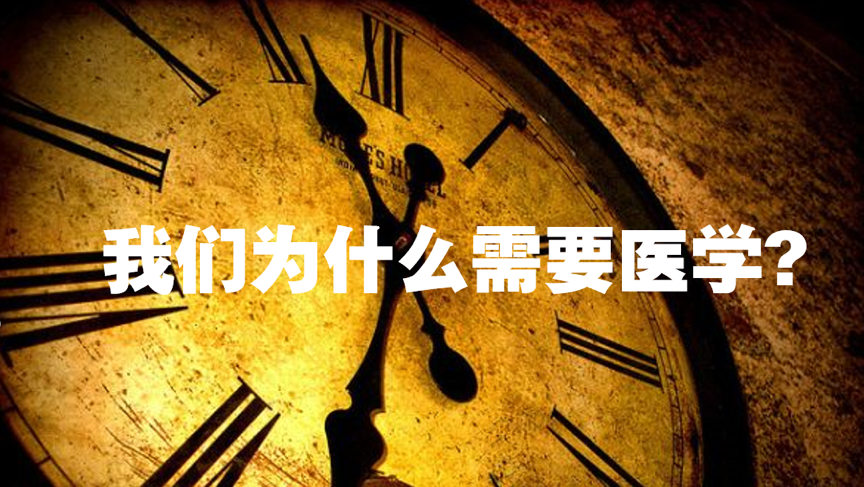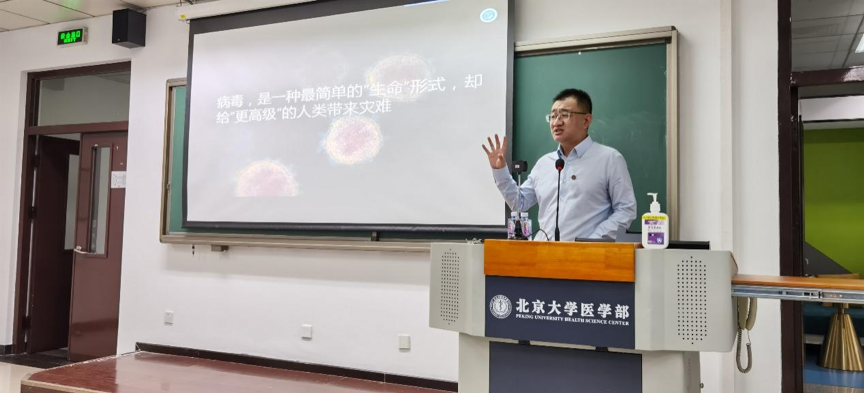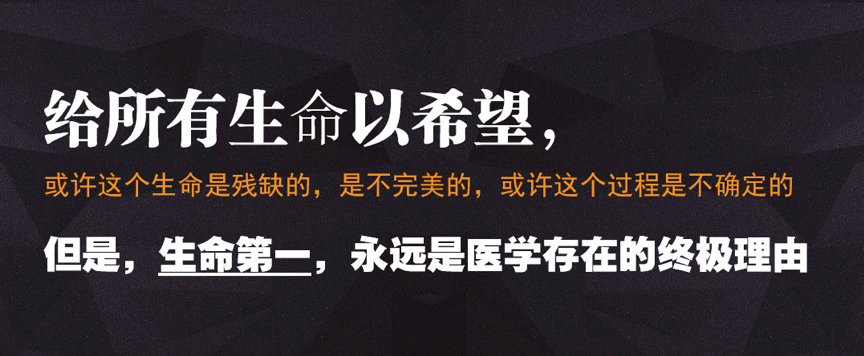The 89th Peking University Medical Humanities Forum: Report by Dr. Bo Shining about the Ultimate Reason for the Existence of Medicine

Figure 1 Why do we need medicine?
On October 15, 2021, Bo Shining, associate chief physician from the Critical Care Medicine Department of Peking University Third Hospital, was invited to give a lecture on “Why do we need medicine?” in Room 308, Yifu Building of Peking University Health Science Center. The lecture was hosted by Chen Qi, associate professor in the School of Medical Humanities, Peking University.
The lecture mainly focused on “Would human beings be alive without medicine?” “What is the ultimate reason for the existence of medicine?” “How is the disease cured? What role does the doctor play? What role does the patient play?” Dr. Bo Shining not only taught basic medical concepts such as R0 (basic reproduction number), herd immunity, and extracorporeal membrane oxygenation (ECMO), but also introduced cutting-edge medical diagnosis and treatment technologies such as Chimeric Antigen Receptor T-Cell Immunotherapy (CAR-T) and mRNA vaccine technology. He talked about medical humanities topics such as the ultimate reason for the existence of medicine as well. With humorous, easy-to-understand language, and vivid clinical cases, Dr. Bo helped medical students feel the temperature of medicine and the value of life more deeply.
Figure 1 Why do we need medicine?
On October 15, 2021, Bo Shining, associate chief physician from the Critical Care Medicine Department of Peking University Third Hospital, was invited to give a lecture on “Why do we need medicine?” in Room 308, Yifu Building of Peking University Health Science Center. The lecture was hosted by Chen Qi, associate professor in the School of Medical Humanities, Peking University.
The lecture mainly focused on “Would human beings be alive without medicine?” “What is the ultimate reason for the existence of medicine?” “How is the disease cured? What role does the doctor play? What role does the patient play?” Dr. Bo Shining not only taught basic medical concepts such as R0 (basic reproduction number), herd immunity, and extracorporeal membrane oxygenation (ECMO), but also introduced cutting-edge medical diagnosis and treatment technologies such as Chimeric Antigen Receptor T-Cell Immunotherapy (CAR-T) and mRNA vaccine technology. He talked about medical humanities topics such as the ultimate reason for the existence of medicine as well. With humorous, easy-to-understand language, and vivid clinical cases, Dr. Bo helped medical students feel the temperature of medicine and the value of life more deeply.

Figure 2 Dr. Bo Shining is giving the lecture.
Would human beings be alive without medicine?
Without medicine, would human beings still exist? The answer given by Dr. Bo is that human beings could still exist without medicine. Medicine is not the decisive factor for human being’ survival and reproduction. What matters is the balance between the natality and mortality. As long as the birth rate is no less than the death rate, the species can continue. With or without vaccines or special drugs, the immunity evolved by human beings is the most basic weapon. The diversity of genes is the most “conservative” weapon to help humans resist diseases and viruses.
What is the ultimate reason for the existence of medicine?
With respect to the ultimate reason for the existence of medicine, Dr. Bo Shining’s answer is: “Life First.” All varieties of sciences serve human life, and “Life First” is the biggest reason for the existence of all sciences. The aims of the existence of medicine are to prolong the life, maintain the dignity, and realize the value of patients.

Figure 3 “Life First” is the ultimate reason for the existence of medicine.
How is the disease cured? What role does the doctor play? What role does the patient play?
How is the disease cured? Self-healing ability is the ultimate weapon for mankind to maintain health and overcome diseases. What the doctor can do is to gain time, create conditions for the patient’s self-healing. Doctors try their best to give hope to all lives, although the life might be incomplete and imperfect, and the process might be uncertain. Patients would also be grateful for medicine and life because of the efforts made by doctors, and they would feel happy due to the hope brought by doctors.
Dr. Bo ended the lecture with the citation of one sentence in Liu Cixin’s The Wandering Earth : “Hope is something more precious than diamonds, and hope is the only direction for us to go home.” And medicine is just the thing that gives life hope.
Q & A
1. Why does the doctor save the patient who is incurable?
What the doctor does is to give hope and comfort to patients and their families. Medicine is “to cure sometimes, to relieve often, to comfort always.”
2. For the young man who gave up his life, why did the doctor go against the patient’s wishes to treat him?
In many cases, suicide is just a momentary impulse. In fact, the youth in that case wrote a note at the end of his life: “Help me!” As a doctor, we should try every means to fight for the right to live for the patient. What we should do is to give life a hope.
3. How can people with no medical background study medical humanities?
Medical humanities is the collaboration between you and me, the collaboration between medical humanities researchers and clinicians.
Jin Yanan, Chen Qi; School of Health Humanities


